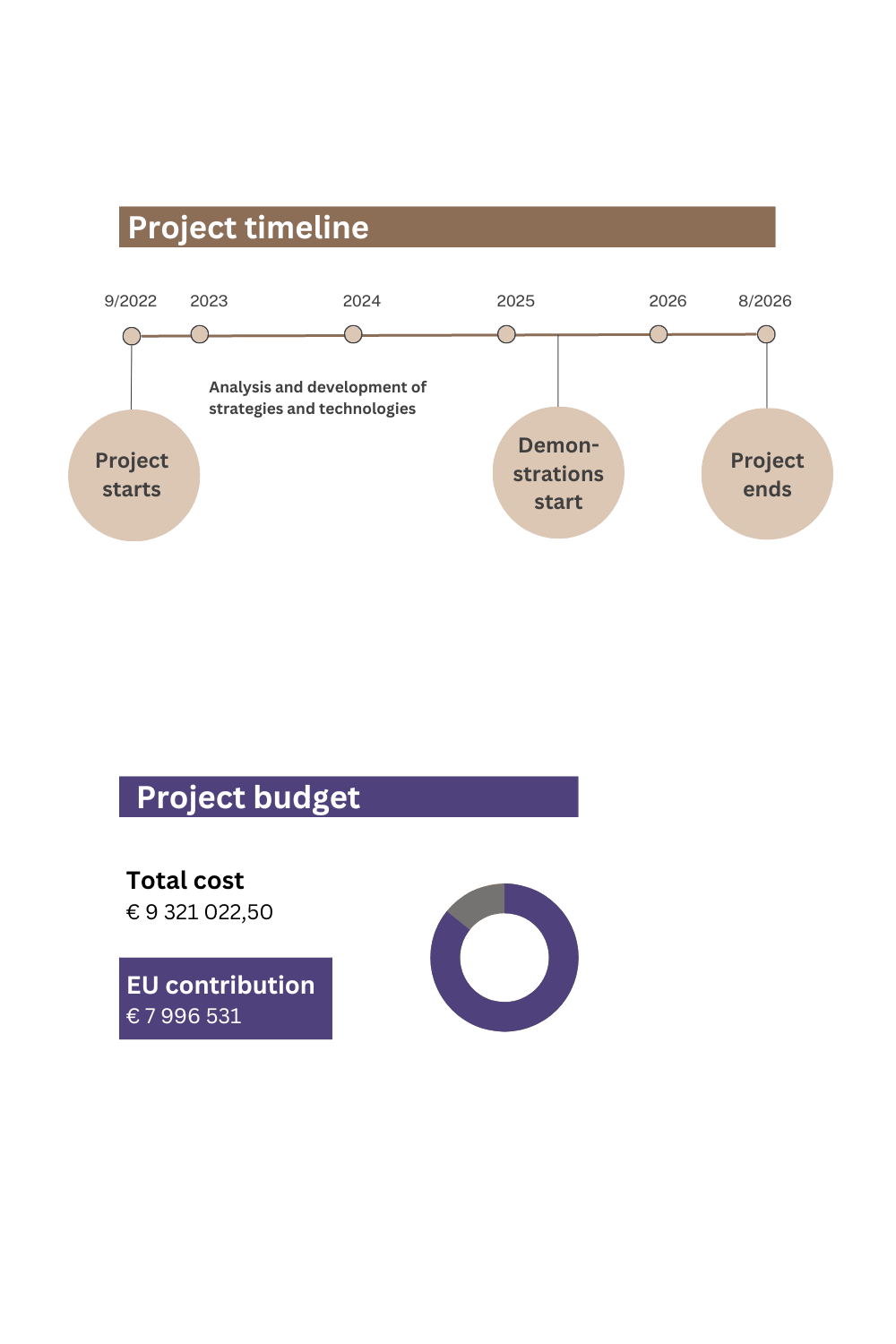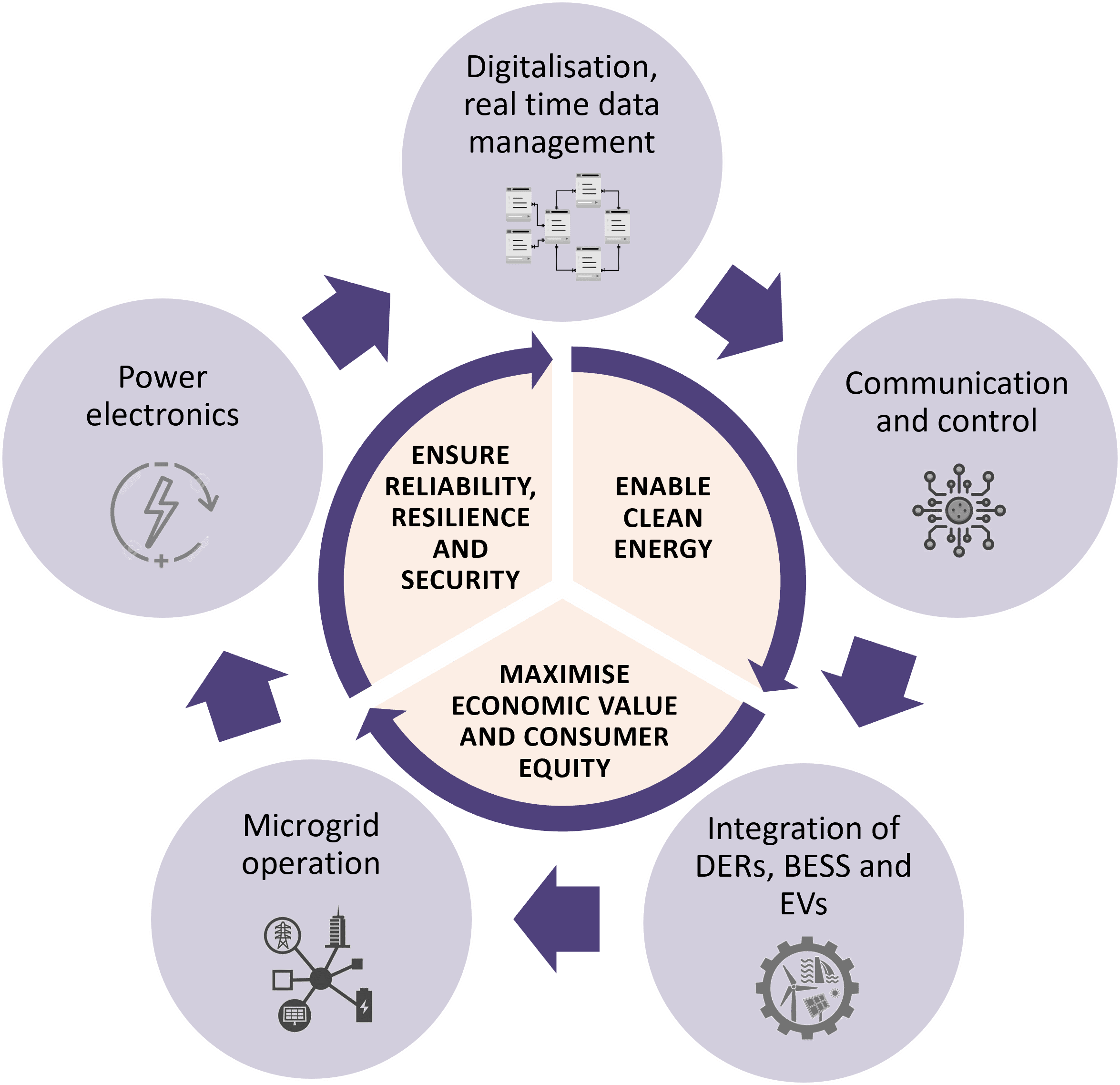Budget
Partners
European countries
Electrical power and energy systems (EPES) are undergoing unprecedented changes driven by environmental and societal concerns. To improve reliability and resilience, the systems need urgent upgrades.
Modern grids are driven by intelligent devices and technologies, making them highly complex and dynamic. The interconnected grid faces multiple threats, including cyber-attacks, man-made hazards, and extreme weather events, jeopardizing energy supply security.
eFORT’s main objective is to contribute to modernising the electricity networks to reduce blackouts in both frequency and duration. Grid modernisation will also reduce the impact of disruptions and enable service being restored faster in the event of outages. It will also increase energy efficiency of locally produced renewables.
eFORT will introduce a set of solutions at the cyber and physical layers to detect, prevent and mitigate grid vulnerabilities and threats. These will include an interoperable intelligent platform to set a common foundation for grid characterization and vulnerability overseeing, as well as gather information from smart grid components and apply heavy-duty algorithms. Asset management developments will strengthen grid infrastructure robustness, which will be empowered by the addressed digital technologies.
These elements will be validated in relevant environments using four demo cases that cover the entire grid value chain.
eFORT launched in September 2022 and is supported by the EU Horizon Energy with a 7.997 million € funding. The project will run for 48 months, ending in August 2026. The consortium consists of 23 partners from 9 countries.

IoT, blockchain and cybersecurity in a prosumer-grid
Pan-European transmission level
Cascading effects and restoration of interconnected power grids
Flexibility and islanding on mountainous and remote areas
Digitalisation and secure design of a substation
To provide a deep understanding on the vulnerabilities and risks of the European power grid, both currently existing and arising ones, in its transition to a more digitalised and decentralised system.
To develop a robust EPES defence system composed of secure-by-design technologies capable of facing a wide range of potential threats in compliance with real-time requirements.
To develop a secure grid framework addressing privacy and data management issues.
To develop operational technologies and strategies aiming at improving grid resilience.
To carry out a complete demonstration and validation program up to TRL 5-6 in four different demo-sites.
To identify and analyse the potential replication of eFORT solutions considering their cost-benefit analysis, as well as the technical and regulatory obstacles in a large-scale deployment.
To ensure the exploitation of the eFORT results by developing the corresponding business plans, while ensuring the uptake of project results and recommendations by the main EPES players.
To raise awareness among public bodies and relevant stakeholders about the benefits and needs of increasing security and resilience in the current EPES across Europe (i.e., protection against extreme weather events and attacks, enhanced maintenance operation, higher energy efficiency, etc.).
